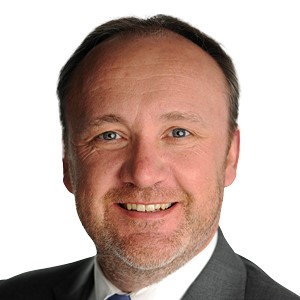The landscape for businesses in 2024 remains complex. Leaders must find ways of plotting a sustainable future for companies, stakeholders and the planet while cutting through the noise and political rhetoric in a year when approximately half the global population will head to the polls.
During Criticaleye’s recent Sustainability Forum, delivered in partnership with
Accenture, attendees discussed where the big concerns lie on progress towards corporate sustainability objectives, and what drivers can be utilised by executives and non-executive directors to translate stated commitments into action and outcomes.
A primary challenge for leaders is balancing short-term demands with the creation of long-term value. Increasingly, there is an understanding that putting sustainability at the heart of business strategy serves to protect value and reinvent growth. However, with so many issues to consider – from ongoing economic uncertainty and geopolitical escalations to digital disruption and the future of the workforce – many Boards are struggling to commit enough time and resource to a topic as complex as sustainability, especially given the proliferation of regulations and reporting requirements.
Toby Siddall, Sustainability Lead, UK, Ireland & Africa and Global Sustainability Strategy Lead at Accenture, voiced concern around businesses falling behind on action, despite having targets in place. “Sustainability is still a top three agenda item for C-suites and Boards," he said. "I think what we're finding is that Boards and C-suites are not quite sure exactly how to invest and how to make progress.”
While there is near universal agreement on tackling major issues such as climate change and nature loss, it seems that more doubt has crept in around how to meet targets, particularly as cost pressures continue to bite in Boardrooms and the broader sustainability debate becomes increasingly politicised. Business cannot be expected to solve the climate crisis and other challenges by itself. There needs to be a concerted effort between governments, regulators, investors, corporations and civil society to make a real difference. However, large businesses can often take a leading role in certain areas.
During a 30-year stint at M&S,
Richard Gillies led the UK grocery retailer’s sustainability strategy as Chief Sustainability Officer and Director, Plan A & Sustainable Business from 2008 to 2013. Currently a NED at Sustain Recycling and a Criticaleye Board Mentor,
Richard called for more bravery from businesses.
“Sometimes you do have to have the courage of your convictions and … increasingly push for regulation to follow you. We [M&S] went first with a five pence charge for plastic carrier bags before all the other retailers, and then lobbied like mad to get the various devolved Parliaments around the UK to legislate,” he recalled.
Rules and Regulations
Some progressive companies can set the sustainability agenda within a given industry, but effective regulation has the power to be even more transformative. The expansion of ESG reporting frameworks in recent years, particularly in Europe, has begun to provide real momentum. However, corporates are now expected to make sense of reams of data points while fitting them into an ‘alphabet soup’ of frameworks.
“There's real concern around the volume of data to be managed for regulatory reporting,” said Toby. “We are also seeing lots of clients trying to navigate an explosion of applications and platforms for an ESG solution.”
David Nussbaum, Senior Independent Director at Drax Group, argued that regulation needs to be more integrated and streamlined to help businesses report. “We need better regulation and we need international alignment on regulation. That means not just governments, but also stock exchanges and reporting regulators like the IFRS [International Financial Reporting Standards] being aligned,” he said.
Gaps are starting to emerge between different jurisdictions, with some regions doubling down on regulatory action, while others take their foot off the gas. In Europe, there is the CSRD (Corporate Sustainability Reporting Directive), the EU Deforestation Regulation (EUDR) and CSDDD (Corporate Sustainability Due Diligence Directive), which are starting to cut through according to
Toby. “But then in the US, we have seen major resistance to the SEC [The U.S. Securities and Exchange Commission] proposals getting watered down,” he added.
This lack of consistency on a global level, along with increasing debate around regulation versus voluntary disclosures, is only making the situation more complex for business leaders – particularly those with international operations – and is ultimately slowing down progress.
Investing for the Future
Investors provide another layer of complexity to the sustainability puzzle for management teams and Boards. The short-termism of the public markets and an ongoing focus on quarterly results rather than targets set for 2030 and beyond continue to restrict the ambitions of sustainability-driven businesses.
Toby said: “I'd like to see investors reviewing their valuation models faster, to pick up on whether a business is looking at the externalities of climate and nature which are coming down the line, whether it's physical shocks in the supply chain or transition risk. Historic performance is not a predictor of future performance. That's never been truer than it is today because the context in which businesses are operating in is changing.”
While institutional investors generally bring longer-term horizons than the average retail investor on the public markets, it was also argued that private equity investors are thinking about building sustainable value in portfolio companies beyond just the typical three-to-five-year ownership period ahead of an exit.
Zoe Haseman is Infrastructure Head of Sustainability at EQT Group, which is one of the largest PE funds in the world with €232 billion worth of assets under management. “Part of my role is delivering on EQT's purpose to generate consistent returns for our investors, future proof our companies and have a positive impact with everything we do,” she said. “Part of this is convincing our portfolio companies to think how we think about sustainability.”
When a decision is made to invest in a business, EQT integrates sustainability as a core workstream within the initial mobilisation plan and conducts sustainability onboarding with the management team. “In this, we discuss the company's operations and potentially shifting them from various stages of maturity when it comes to sustainable operations, to being a high-performing company on the path to exit.”
In this instance, it’s clear that when investors apply a longer-term mindset, they can be a driver of progress towards sustainable outcomes within businesses. “It’s not just about where the company is now [at the point of exit] … A buyer really wants to see that there's some trajectory in the future for them to be able to put their mark on a company too,” Zoe added.
Clearly, leaders have a huge challenge in making sense of a confusing regulatory environment and differing investor mindsets, at a time when practical action on sustainability is sorely needed. However, those that keep a laser focus on making material changes to their business operations stand a better chance of cutting through the fog.
Those who cover their eyes and do the bare minimum risk the future of their businesses and the planet.



